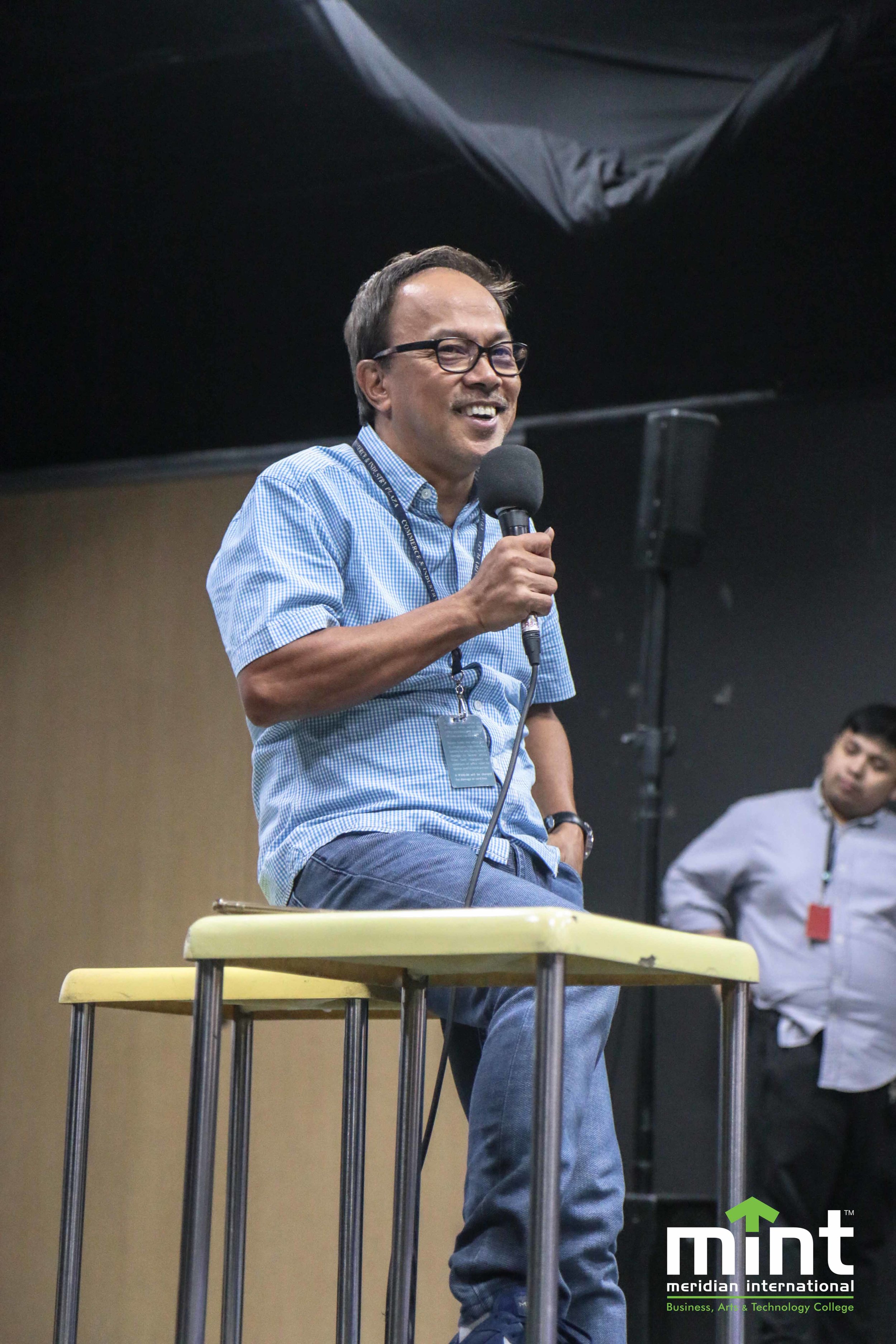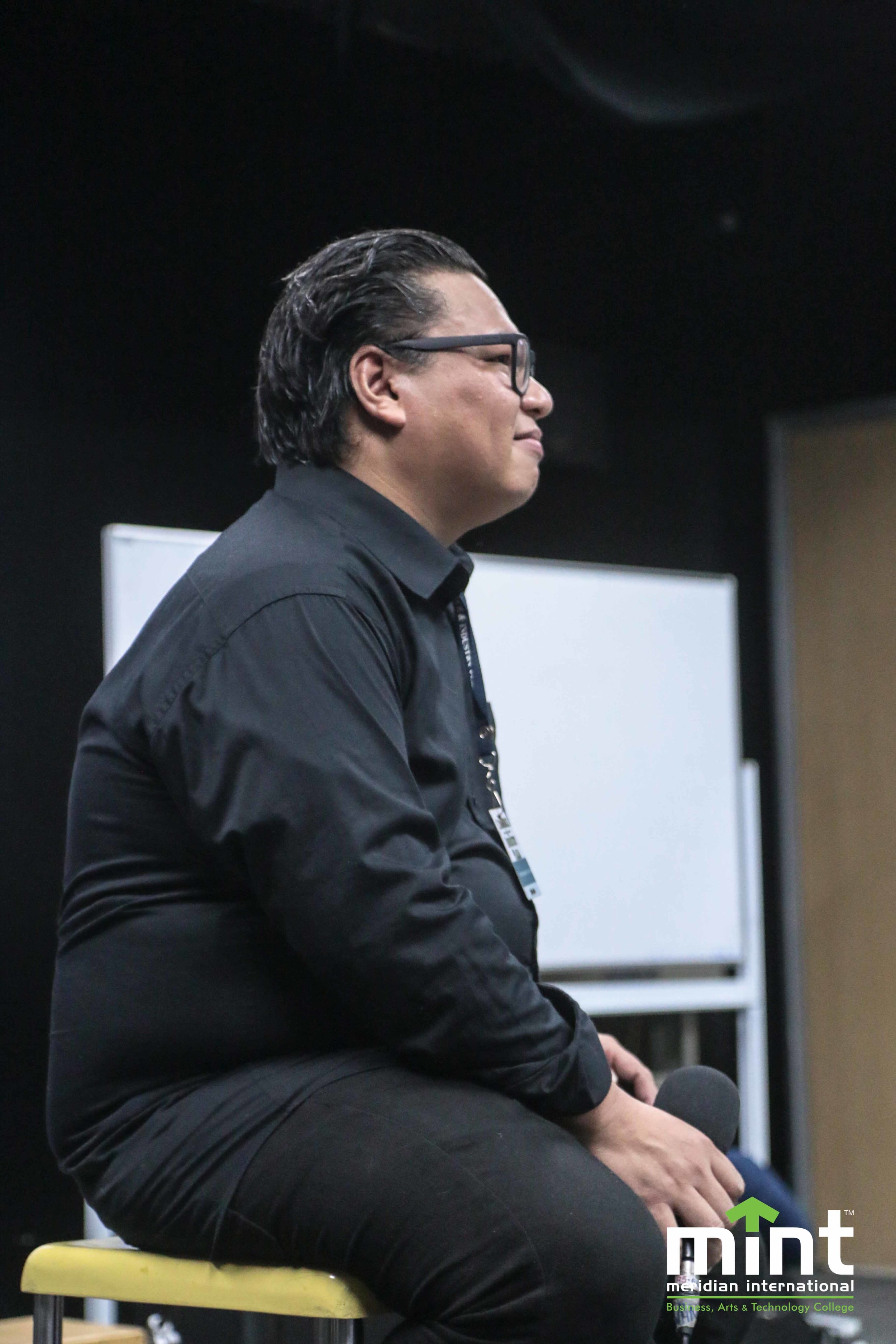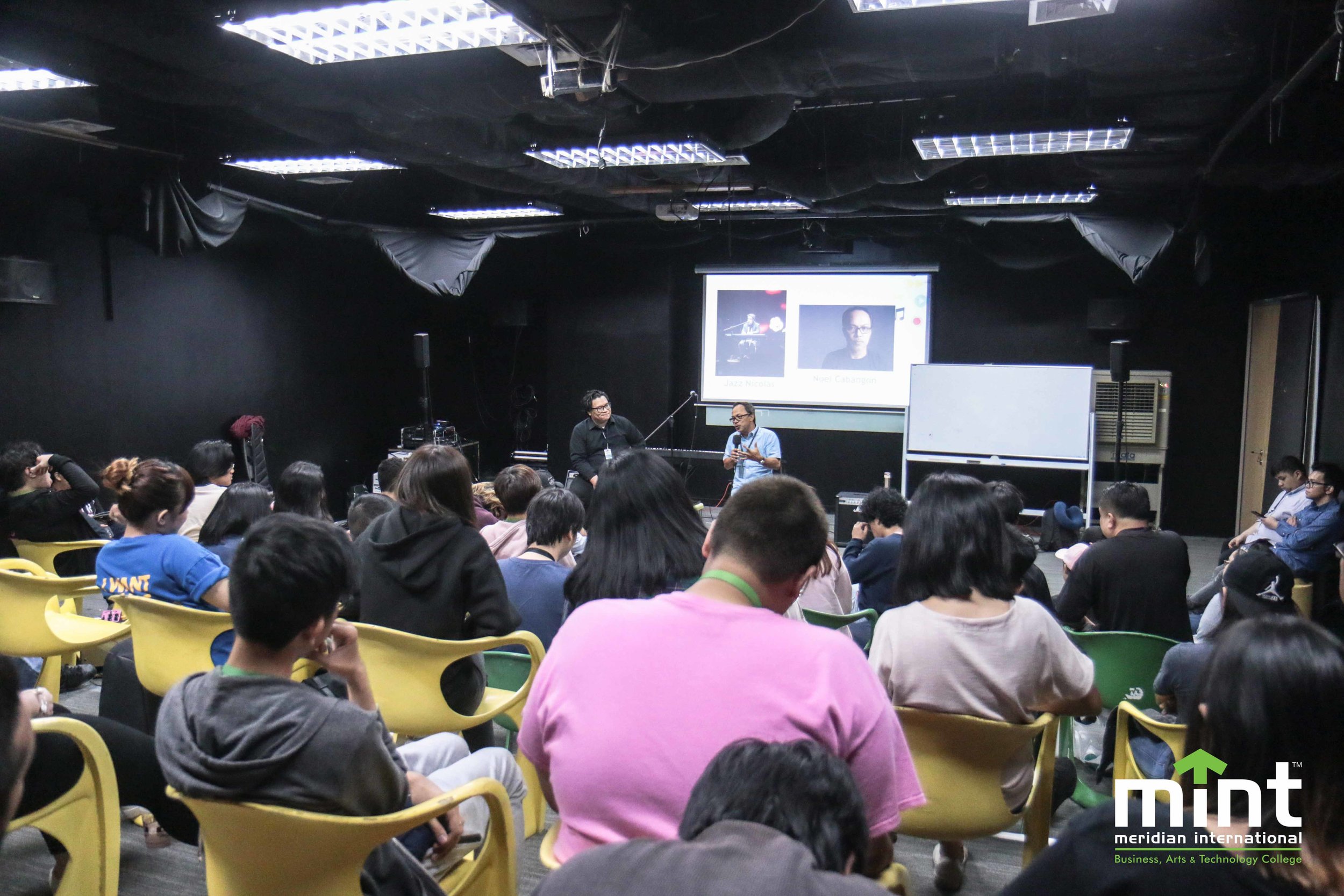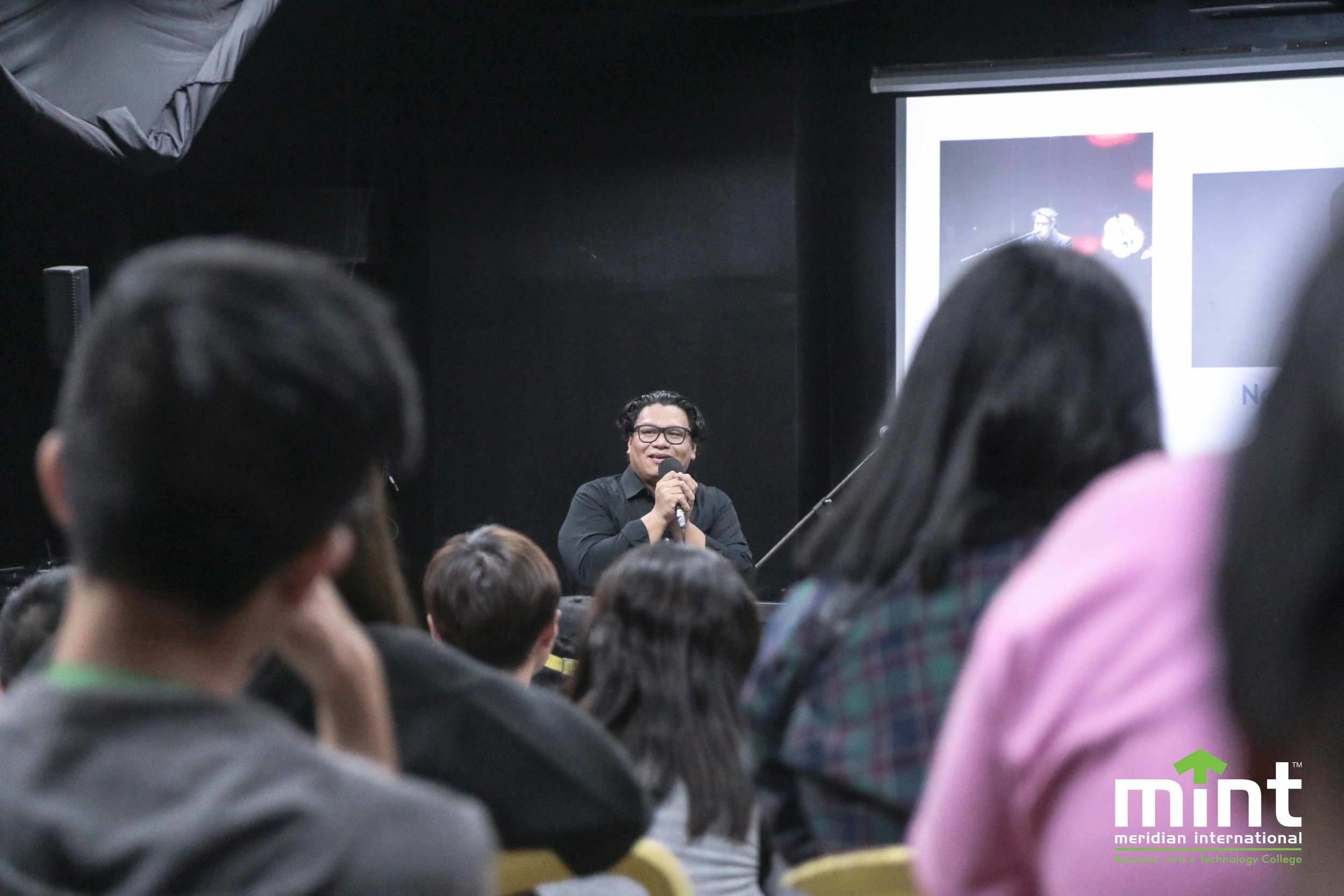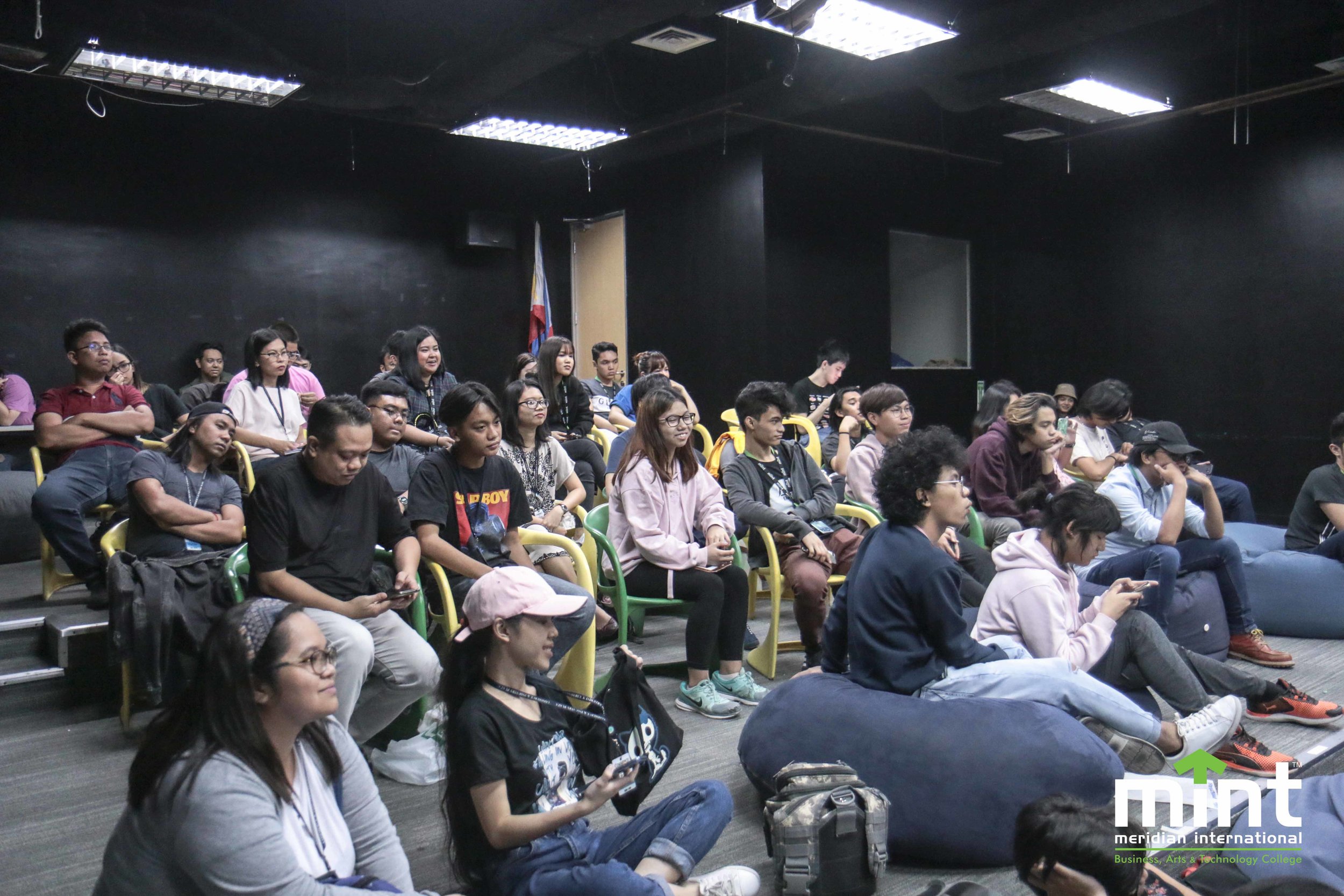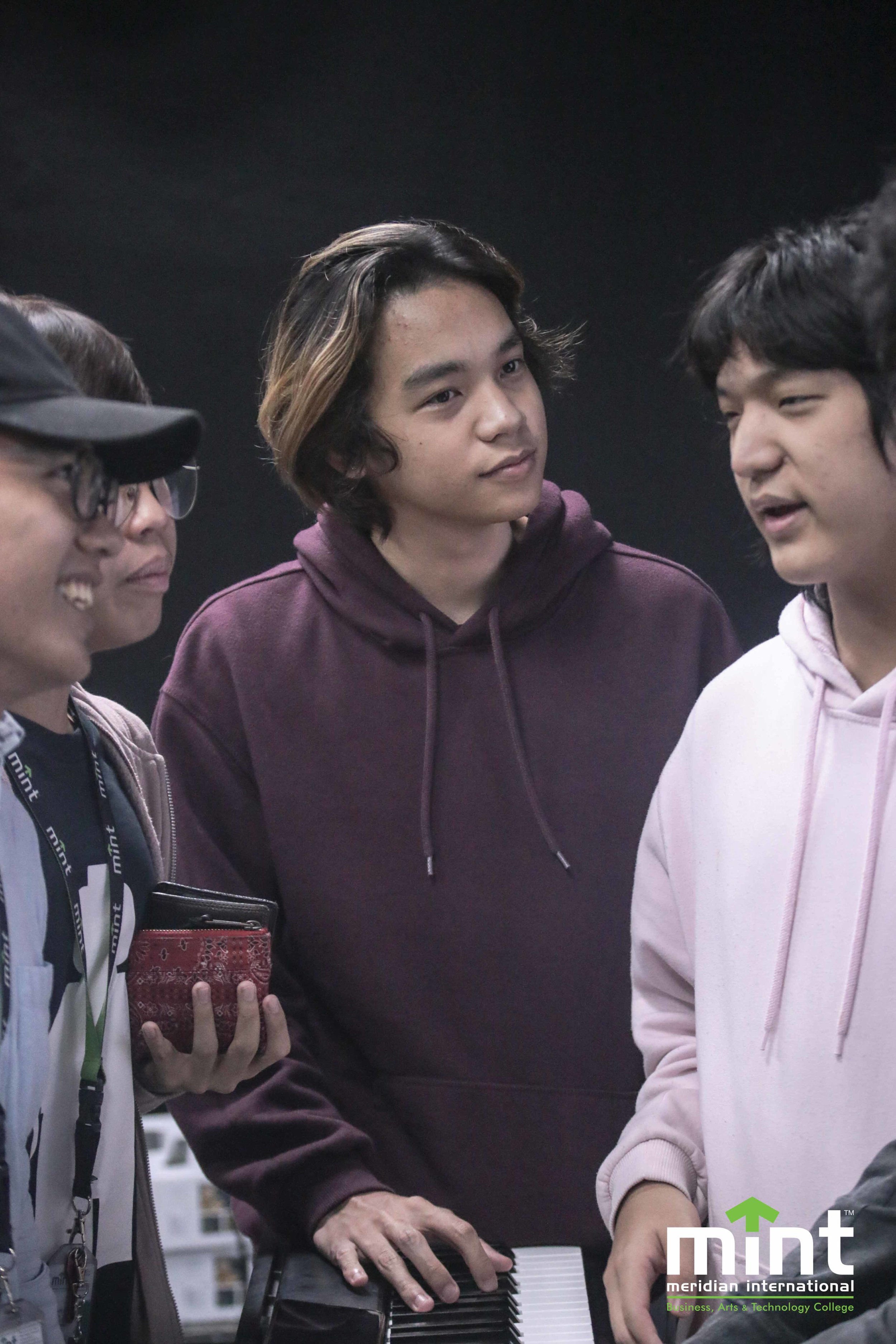Photos by Ivan Pasia
For OPM icons Jazz Nicolas of Itchyworms, and folk singer Noel Cabangon, a huge hit song should be able to “paint a picture in the listener’s mind.” Last April 24, MINT College, together with PhilPop Foundation, hosted a songwriting bootcamp for MINT Music Business Management students and other aspiring songwriters from different parts of the country.
In just one day, the speakers and the crowd had fun in rediscovering the art of music-making. Both prolific musicians in their own genres, Cabangon and Nicolas began the conversation by sharing their respective creative process in coming up with a song.
Jotting down ‘notes’
Before being a bassist and a drummer of famous local rock band, Itchyworms, Jazz Nicolas was first a pianist. He began his affair with music by learning to read notes from music sheets and pressing the corresponding key in the piano. “Always begin with what attracts you the most,” he said. “It was creating melodies for me, so I start with it.”
As a songwriter, he prioritizes composing “distinct melodies.” He also shared that whenever he write for his band, he always keeps in mind to give an equal chance for each of them to shine through at every song. “Hindi pwede ‘yung lead vocal lang ‘yung kilala. Gusto ko, ma-appreciate ng mga tao bawat isa sa amin,” he said.
True enough, his band’s hit single and 2016 PhilPop Songwriting winner, “‘Di Na Muli,” showed his approach as a songwriter. The song features each instrument distinctly heard, and were in harmony with the lead vocal. “For me, I like it when the melody can stand alone,” he said. “Parang kapag narinig mo yung melody, alam mo na anong kanta agad iyon.”
It’s all in the mind
For Noel Cabangon, he always begin with an idea.
“I am a keen observer of my surroundings,” he shared. “I get inspired to begin writing about what I see around me.” True enough, as someone who’s been around in the local music scene for years, his discography covered a variety of topics, but most of them could be described as socially conscious, tackling various important events that reflect issues in Philippine society.
“I always form an idea clearly in my head,” he admitted. “But the real challenge for me is how to convey it clearly, too.” He added that he focuses more on reflecting these ideas into words. “In writing lyrics, you’ll notice that they already have rhythm in them,” he said. “I don’t create complicated melodies. Gusto ko, makuha agad ng mga nakikinig sa akin ano ba yung kanta.”
He further explained that in writing lyrics, there must be a flow of things. He brought up that there are two widely used techniques in songwriting: being direct, and the use of metaphors.
Cabangon also said that an effective composer is someone who is able to make the listeners ‘see’ what they hear. “Maging matalinghaga sa pagsulat ng kanta. Nagkakaroon kasi ng dimensiyon [‘yung kanta] at mas nacha-challenge mo ‘yung imagination ng mga nakikinig sa’yo.”
He added that Filipinos love stories. “Our songs here are written as a narrative,” he said. Cabangon stressed that songwriters should always have a purpose in making such songs. “Pinakamadaling isulat ‘yung nangyari sa atin. We can easily translate these experiences into lyrics.” he said.
The two OPM artists stressed that a songwriter should be “specific, clever, and honest.” Authenticity of the stories told in songs are most appreciated nowadays, and as Nicolas puts it, “write what you know.” This is best reflected if the inspiration of the songwriter came from one’s experiences.
“Gumawa ka ng kanta na wala na, o wala pa,” Nicolas ended. W


